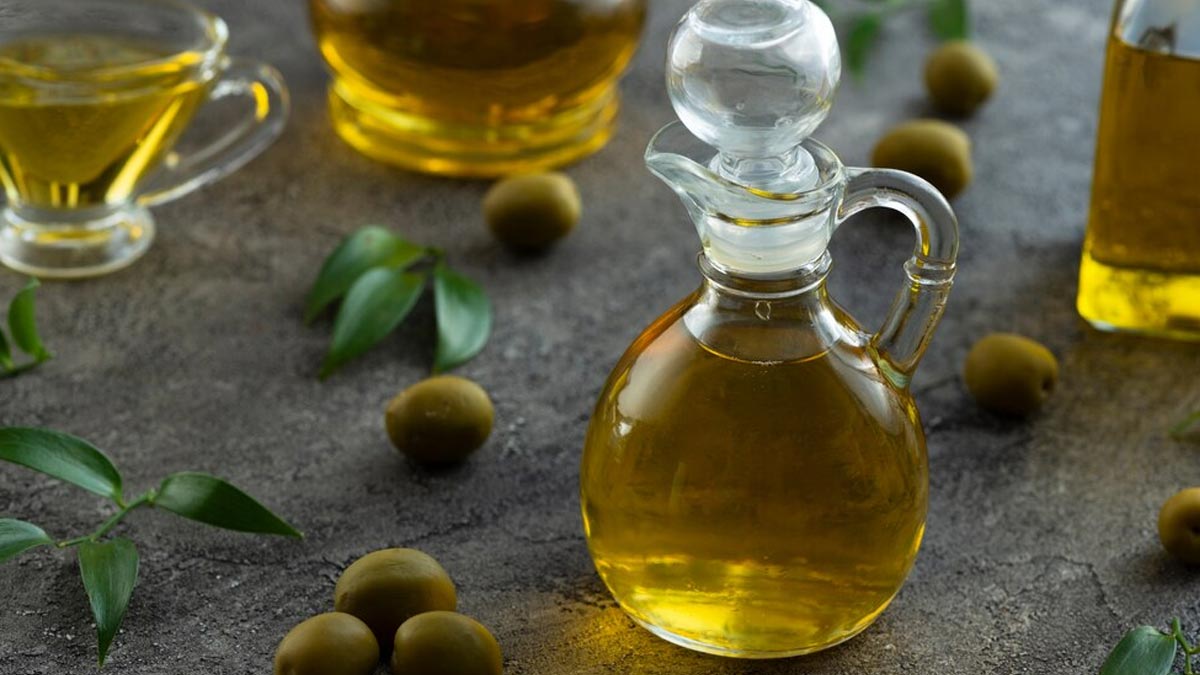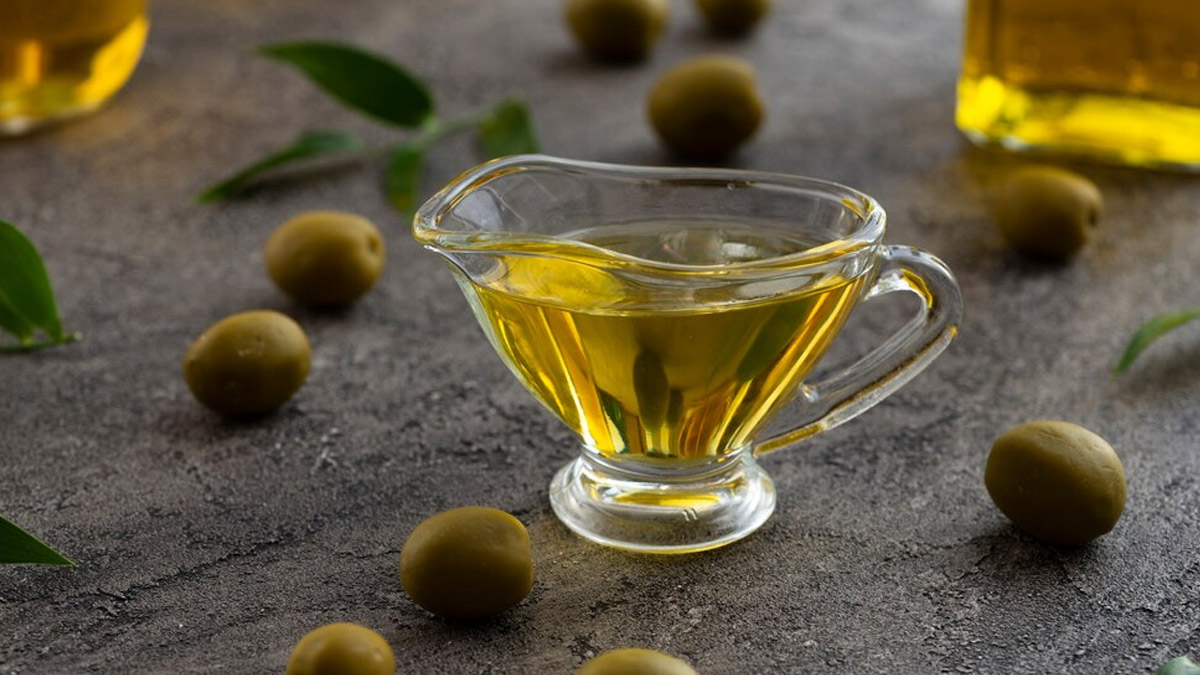
Olive oil is a healthy source of monounsaturated fat.
In general, fat is an essential macronutrient that helps our body function effectively. It is high in energy, aids in the absorption of fat-soluble nutrients, including vitamin A, D, E, and K, and plays a crucial role in supporting cell structure.
Table of Content:-
However, not all fats are the same.
Saturated fat and trans fat, which are also referred to as 'unhealthy fat,’ are said to increase the risk of heart disease, whereas monounsaturated fat and polyunsaturated fat are 'healthy' fats that offer heart-healthy benefits. This is why the US Harvard TH Chan School of Public Health recommends replacing saturated and trans fat with healthy, good fat sources, like olive oil. Here’s how it is likely to benefit you and your heart:.
Also Read: Regular Intake of Olive Oil Lowers risk of Heart Disease, Alzheimer’s, and Cancer
Lowers Heart Disease Risk

According to a study published in the Journal of the American College of Cardiology, people who consumed more olive oil (over half a tablespoon daily) had a lower risk of developing heart disease and Coronary Artery Disease (CAD) compared to those who didn't consume olive oil.
Researchers found that replacing saturated fats like butter and margarine with olive oil further reduced the risk of heart disease.
Additionally, higher olive oil intake was linked to improved blood markers associated with inflammation and cholesterol levels.
Another study published in the journal Stroke compared a Mediterranean diet rich in olive oil to a low-fat diet for people with Coronary Heart Disease (CHD). Researchers found that the Mediterranean diet led to a decrease in carotid artery thickness, a marker of future heart disease risk, over five and seven years, while the low-fat diet had no effect.
Olive oil also contains antiinflammatory compounds, including phenolic antioxidants, which are said to reduce inflammation through various mechanisms, including inhibiting the production of inflammatory molecules and improving vascular function, according to a review published in the journal Nutrients.
Helps In Cholesterol Management

Cholesterol is one of the biggest risk factors for heart disease. But not all cholesterol is bad.
There are two different types of cholesterol: Low-Density Lipoprotein (LDL) cholesterol and High-Density Lipoprotein (HDL) cholesterol.
While increased (LDL) cholesterol, also known as 'bad' cholesterol, leads to plaque buildup in the arteries, increasing a person's risk of heart attack and stroke, HDL cholesterol absorbs excess cholesterol in the blood and carries it back to the liver, where it is excreted from the body, explains the US Centers for Disease Control and Prevention (CDC).
Switching to olive oil is said to lower LDL and improve HDL cholesterol levels. This is because it contains the highest percentage of monounsaturated fat, which is said to benefit cardiovascular health.
Also Read: What Does It Mean To Have A Healthy Heart Rate? Expert Answers
How Much Olive Oil Should You Consume In A Day?

The amount of olive oil considered safe in a day varies based on individual dietary needs and overall caloric intake.
Generally, incorporating about 2-4 tablespoons of olive oil per day is considered safe. However, research suggests consuming more than half a tablespoon of olive oil a day may lower heart disease risk.
However, it's crucial to consider the total fat and calorie content, as excessive consumption can contribute to weight gain.
It's advisable to balance olive oil intake with other sources of healthy fats, such as avocados, nuts, and seeds, and to be mindful of overall calorie consumption.
Also watch this video
How we keep this article up to date:
We work with experts and keep a close eye on the latest in health and wellness. Whenever there is a new research or helpful information, we update our articles with accurate and useful advice.
Current Version